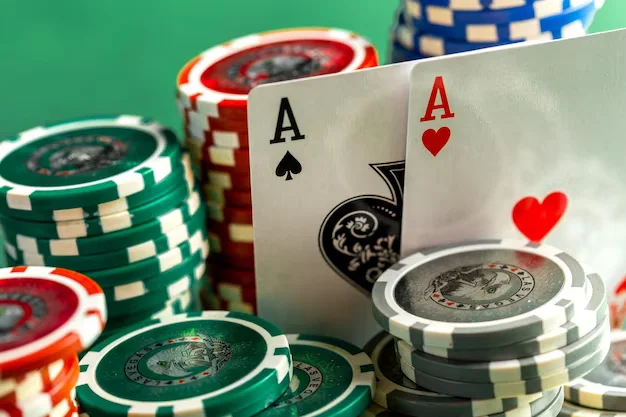What is a Deuce in Poker
In poker, the deuce, or deuce, occupies an important position. The strategic importance of the deuce is often overlooked because of its low rank, but it should not be underestimated. It serves as a testament to the complexity of the game, in which even the seemingly weakest cards can play a decisive role given the right circumstances. This brief study is intended to emphasize the role of deuce in poker and the complex strategies it requires from players.
Playing a hand that includes a deuce requires a complex strategy that requires caution because it is very easy to be outplayed by a stronger hand. The difficulty lies not in the value of the card, but in the opportunities it presents, from forming unexpected straights to acting as a wild card in some variations of the game.
How to Play Deuce in Poker
In poker, the task of rebuilding a deuce hand can often seem like navigating treacherous waters. Playing a hand that includes a deuce requires not only an understanding of the cards, but also a keen observation of how opponents are playing their hands. This subtle approach is essential for any player wishing to turn a modest hand into a winning opportunity.
When the cards are fully revealed and the action turns to you, the first step should be to determine the atmosphere and tension of the table. Watch carefully as your opponents make their moves. If there is an aggressive bet or raise ahead of you, you should be cautious. Such actions often signal strength, indicating that a call, re-raise or attempted bluff may not be the smartest course of action. Having a deuce in your hand, without a strong accompanying card or the potential for a high-ranking hand, usually does not justify entering a betting war after the river.

Conversely, if the table opts for more passive play and everyone checks, you find yourself in a position where patience can actually be beneficial to you. This scenario allows you to check as well, biding your time in the hope that your hand will improve or the table dynamics will change in your favor. Of course, the goal is to show up with a set that will give you the opportunity to play more aggressively. However, in my long experience playing poker, I have learned that it is a game that gives you hope but can also take it all away, so don’t jump to any premature conclusions.
In cases where the desired hands don’t come up and the cards on the table don’t offer any good developments, it’s obvious that the cards you have in your hand aren’t worth the risk. The art of poker is not only knowing when to play a hand, but also knowing when to fold. If your deuce hand doesn’t turn into a stronger hand, the smart decision is often to fold. Such an action, far from being an admission of defeat, is an acknowledgement that poker is a long game, and it rewards patience and knowledge of all aspects of the game to realize that not every hand dealt is meant to be played to the end.
Knowing how to play smartly when you have a deuce in hand gives you a wide range of options to play in different situations. It emphasizes the need for a balanced approach that allows you to match the potential of your hand with the actions of your opponents. In poker, where every move and gesture counts, being able to analyze your opponents and act accordingly is essential. Whether it’s a strategic check, a timely fold or a set, playing a hand with a deuce after river is a good poker strategy.

